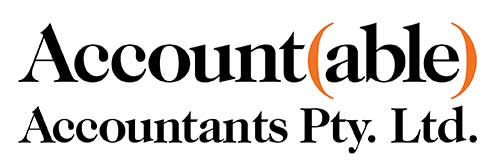Online selling – hobby or business?

Selling Online
If you sell products or services online, you need to understand whether you are doing it as a hobby or carrying on a business.
The questions below can help you understand whether your online selling is a hobby or a business. Every ‘yes’ answer increases the likelihood you are carrying on a business – but you need to consider all of your answers to gain a complete picture of your situation.
Did you set up your online sales with the intention of being a business?
If you set up a ‘shop’ on an online trading or auction site, you are likely to be carrying on a business – especially if you paid fees to operate this ‘shop’.
Do you pay for your online-selling presence?
If the online space looks like a shop, has a brand name, proper business name or any other signs that people would likely to expect from a business, you are likely to be carrying on a business – especially if you paid fees for this to occur.
Is your main intention to make a profit?
If you sell items online because you intend to make a profit, then you are likely to be carrying on a business. For example, if you deliberately buy items to sell online for more money than you paid, then you are likely to be carrying on a business.
However if you sell household goods or possessions that you don’t want anymore, although you may get a ‘good’ price it is unlikely to be a business.
Do you make repeated or regular sales?
If you sell items online on a regular basis, you are likely to be carrying on a business.
These sales could be to the same customer, or a number of different customers.
If you make the items you sell online, do you charge more than they cost you to make?
If you charge more for items than they cost you, then you are likely to be carrying on a business.
For example, if you make or buy an item cheaply and then sell it online for significantly more than you paid for it, then you have made a profit and might need to declare that income. If you do this regularly, you are more likely to be carrying on a business.
Do you manage your online-selling activity as if it was a business?
If you do any of the following, you are likely to be carrying on a business:
- your online-selling activity is organised and has systems and processes in place
- you advertise your online space
- you keep some or all of your records
- you have a business plan.
If you sell items in the same way and timeframe as a business in the same industry, then you may be carrying on a business.
Is what you are selling online similar or the same as what might be sold in a ‘bricks and mortar’ business?
If the items or services you are selling are commonly available or reasonably easy to find in a physical store, then you are likely to be carrying on a business.
Example – Selling online as a hobby
Marika wishes to clear an excess of clothing from her wardrobe.
She lists them on the internet for individual sale. Some of the items sell for more than her buying price, some for less.
She charges the buyers postage and receives a total of $2,075.
Marika is not carrying on a business because she:
- did nothing to improve the value of the items
- does not sell any more items for a long time
- does not pay the online auction site for a ‘shop’ space
- generally receives less than the original purchase price of the clothes
- has no intention to sell clothes online as a business.
Example – Selling online as a business
Shari Belmont pays for a store online to sell antique items from her grandmother’s estate after her death. This costs her $2,000 for the year.
As some of the items are quite valuable, the total value of the sales is $42,000.
During this time, Shari discovers she enjoys the activity and starts looking for other antiques to sell. She goes to garage sales, antique shops and op shops. She pays cash for the antiques, has them repaired if needed, and sells them on her online store.
Shari considers this is a hobby, as she only looks on the weekends and has a full- time job as an office worker.
Although she doesn’t pay to advertise, she has more than a thousand visits per month to her website via a Facebook page she has set up, where she posts photos and details about the items for sale. Her Facebook page is shared by many people in the antique-buying community.
Apart from the sale of her grandmother’s estate, Shari has total sales of $37,400 from 205 items sold during the financial year.
Shari is carrying on a business, even though her sales started off as a hobby. She should declare her online income because she:
- has a specific online store for her antiques
- advertises her antiques (although at no cost) through Facebook
- repairs and resells them for a profit
- makes repeated sales over an extended period of time.
The sales from her grandmother’s estate do not need to be declared as income, but her other sales should be declared as income.
End of example
If you’re an artist, creative or maker and receiving or plan to receive money from creating things such as jewellery, paintings or baked goods, you can use the Hobby or Business tool on business.gov.au to work it out.
https://www.ato.gov.au/Business/Starting-your-own-business/In-detail/Online-selling—hobby-or-business-/
